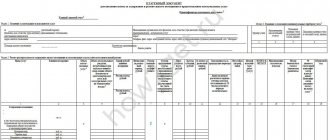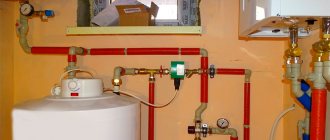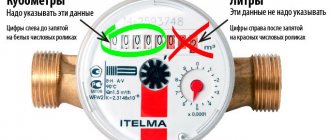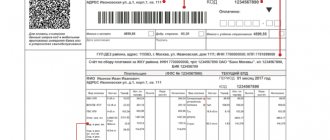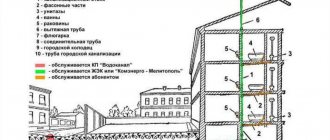Blog
Photo source: https://www.pexels.com/
Having conducted more than 800 seminars for management companies and homeowners associations, I can safely say that discussing management fees and everything connected with it always turns into a heated argument. The main battles arise around issues related to accounting and tax accounting of management fees, the need to activate this service with property owners, the structure of this fee, etc. Since the questions are constant, I decided to write a series of articles in which I will try to “chew” to the public the features of this line in the receipt.
Let's start from afar.
No matter what anyone says, the management organization “enters the apartment building” not to satisfy the needs of residents (there is the state and people of the opposite sex for this), but to make a profit. Profit, in turn, is the worst irritant for a huge number of property owners, since they truly believe that servicing their apartment buildings costs a penny, and inflation does not apply to the costs of management companies
.
The state, in paragraph 2 of Article 162 of the Housing Code of the Russian Federation, directly indicated that the management organization (hereinafter referred to as MA), under the management agreement, “ obliges to perform work and (or) provide services for the management of an apartment building
, provide services and carry out work for the proper maintenance and repair of common property in such a house, provide utilities to the owners of premises in such a house and persons using the premises in this house...
”
Pay attention to the text above and you will see that it separates
from services for the maintenance and repair of common property, as well as from utilities, so let’s immediately determine that the fee for the management of apartment buildings is a fee for a separate type of activity of the management company, although it can be included in the fee for the maintenance of residential premises in accordance with paragraphs. 2 clause 1 of article 154 of the Housing Code of the Russian Federation.
In practice, the management fee could be:
- highlighted as a separate line in the payment document;
- in the payment document is included in the line “fee for the maintenance of residential premises”, but allocated
separately in the list of works and services;
- in the payment document is included in the line “fee for the maintenance of residential premises”, but NOT highlighted
separately in the list of works and services.
The first and second options mentioned above are safe from the point of view of the consequences of a “war” for the money of the UO, but the third option is fraught with very bad consequences
.
The problem is that although it is not directly written in the regulations, the courts make it clear that there is money that belongs to
to the owners of the premises, and there is money that, after payment,
no longer belongs
.
Thus, the Supreme Court of the Russian Federation in the Ruling of the Supreme Court of the Russian Federation dated June 25, 2018 N 304-ES18-7866 in case N A46-15897/2016 ( in fact, there are already hundreds of such rulings
) indicated that contributions from owners in the form of fees for the maintenance of residential premises “
have a target character and do not become the property of the Company
.”
What does all this mean in practice?
This means that if the UO does not separate the flies from the cutlets, or rather, its money from “their” money, then it may turn out that it simply will not have its own money
.
From decision to decision, judges say that if the management company has not completed the work, then the funds remain
on the personal account of the apartment building, and if we assume the apartment building has “gone away,” then the “undeveloped” funds
should be returned
to the owners of the premises as unjust enrichment.
From the point of view of our rather “smoky” legislation regulating the scope of management of apartment buildings, debiting funds from the personal account of apartment buildings is possible only after signing a certificate of completion of work
between the representative of the owners of premises in the apartment building and the management organization (clause 4.11 of GOST R 56192-2014. “National standard of the Russian Federation. Housing and communal services and management of apartment buildings. Services for maintaining the common property of apartment buildings. General requirements”).
And then 2 problems come around the corner:
- in MKD no one
sign certificates of completed work, because there are few real violent ones and no one dared to become chairman of the house council;
- How can you even get management work done???
The first problem
can be circumvented through a management agreement or a general meeting of owners (
if interested, write in the comments and I’ll write a detailed FAQ
), and
the second problem
is actually often unsolvable.
There is a “wonderful” document called the Rules for the provision of services and performance of work necessary to ensure the proper maintenance of common property in an apartment building, approved by Decree of the Government of the Russian Federation of April 3, 2013 No. 290 (hereinafter referred to as Rules No. 290). So, paragraph 9 of Rules No. 290 states that “ information on the provision of services and performance of work provided for in the list of services and work
, are reflected in acts drawn up in
the form
established by the federal executive body, which carries out the functions of developing state policy and legal regulation in the field of construction, architecture, urban planning and housing and communal services, and are an integral part of the technical documentation of an apartment building
.
If you “fail” at the link in this paragraph, then you will see the form of the act itself, which is approved by Order of the Ministry of Construction of Russia dated October 26, 2015 No. 761/pr “On approval of the form of the act of acceptance of services provided and (or) work performed on the maintenance and routine repair of general property
in an apartment building."
Please note that neither the title of the document nor the form itself refers to the activation of management services
?
And this is absolutely true, because:
- Housing complex of the Russian Federation divides
services for the maintenance and repair of common property from management services (clause 2 of article 162 of the Housing Code of the Russian Federation);
- it is impossible to activate services with each house
on filling out the GIS housing and communal services, lawyers going to court, thoughts of the chief accountant and economist on the issue of reflecting certain data in the report on the execution of the management agreement and other work, which, in accordance with the Rules for the implementation of activities for the management of apartment buildings, approved by Decree of the Government of the Russian Federation of May 15, 2013 No. 416 (hereinafter referred to as Rules No. 416) relate to management services.
- detailing of management work in the list of works and services is simply impossible
, since it is impossible to plan and subsequently justify something
that is not of a material nature
.
You read this article during working hours and the owners pay you for it. If they are all sitting next to each other and activating this process, say hello to them from me
. Many will argue that we detail everything as expected... Then I personally have a question - HOW do you do this?
Now let’s return to what was a little higher in the text and analyze the situation when the management fee is not allocated in the list of works and is included in the fee for the maintenance of residential premises
.
Answer me a few questions (write in the comments):
- How will you separate your money (for your dear management) from “their” money for maintenance and repairs?
- How will you activate maintenance and repair services within the management work?
- Well, first of all, how will you apply the benefit under paragraph 30, paragraph 3, Article 149 of the Tax Code of the Russian Federation in terms of exemption from VAT?
If the continuation is interesting, I will write a second part.
Sincerely, your comrade Stalin)))
How is the service calculated?
The amount of the fee is calculated individually for each home , since it includes various expenses. The amount of the service fee depends on the region where the house is located, the number of floors, the presence/absence of an elevator, the area of the local area, etc.
The calculation is made by the management company using the following formula:
Cost of maintaining a house per year / number of home owners, proportional to the share in the common property (based on the area of the apartment).
Next, the received amount is divided by 12 and the amount of the monthly payment for housing maintenance is obtained, which is communicated to the payer through a housing and communal services receipt.
Is housing maintenance fees mandatory?
The amount of accrued utility bills can be reduced in this way: for this it is necessary: organize a meeting of residents of the house, ask housing and communal services managers to justify the amount provided for payment. If you refuse certain works, municipal authorities will be forced to recalculate the amount of payments. Any work that the resident of the house refuses to do, he will be forced to do independently.
Art. 158 of the Housing Code of the Russian Federation indicates that apartment owners must pay for the premises, pay for their housing according to the receipt. If you avoid paying your utility bills, a penalty will first begin to accrue. When the citizen continues to not respond to the accrual of interest on the debt, the utility organization can go to court and the case will be considered in court.
Main list of services
Housing maintenance services in multi-storey buildings include:
- Utilities - these include payments for electricity, gas, hot and cold water, and wastewater disposal.
- Lighting of all public areas of the house.
- Inspection of premises by members of responsible structural organizations in order to ensure the safety of life and health of residents of the house. This point is stated in Article 154 of the Housing Code of the Russian Federation;
- Cleaning of premises for public use, the area adjacent to the house, including carrying out sanitary and hygienic measures.
- Heating of residential premises.
- Compliance with humidity standards corresponding to standard indicators.
- Timely removal of garbage and household waste that is located on the territory of the house, belonging to both residents of the house and entrepreneurs who occupy premises in the residential building.
- Compliance with fire safety standards.
- The use of improvement facilities is seasonal.
- Current and major repairs if necessary - funds for major repairs are calculated separately and entered in a separate column in the receipt. After payment, the money goes to the required fund and is allocated from there for repairs.
This is an incomplete list of services related to housing maintenance that the state is obliged to provide to citizens based on the Communal Code of the Russian Federation. The list of services can be supplemented based on the wishes of the homeowners themselves. In this case, a meeting is held with representatives of the organization servicing the multi-story building. Based on the drawn up protocol, which is certified by the signatures of both parties, the wishes of the residents of the house can be satisfied legally.
Tariffs payable have the right to be agreed directly with homeowners. Instead, representatives of housing and communal services organizations set tariffs themselves, which is illegal.
Important!
Each resident of the house has the right to organize a meeting and check the provided tariffs. Housing and communal services managers do not have the right to refuse a meeting.
The procedure for calculating the tariff for repairs and maintenance of a house
The owners of a residential building themselves set their own tariff for paying for housing services. In addition to the payment for living in an apartment, the payment for renting housing is also included in the case of living in a municipal house. These amounts are spent on subsequent repairs and are in the fund set aside for major repairs. The structure of the tariff for repairs and maintenance of a house looks like this:
- payment for the use of the premises;
- payment for renovations to shared-use and residential spaces;
- payment for major repairs for citizens living in an apartment building.
When a certain service is shown as a separate line on a receipt, for example, “for garbage removal,” this can be considered a gross violation. Such items should be included in the general bill as basic services for housing maintenance.
Services included in the tariff must be specified in a separate contract. This amount also includes the maintenance of hired personnel and payment for the maintenance of general equipment used for work in the house and on its territory.
